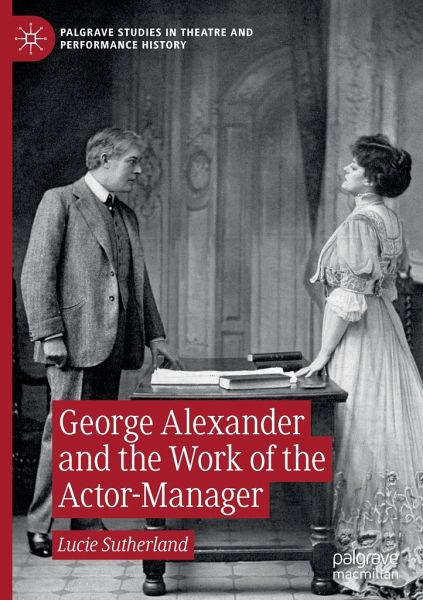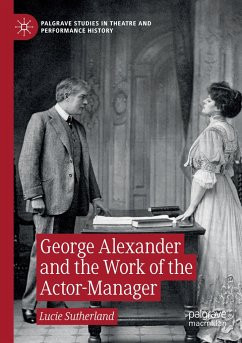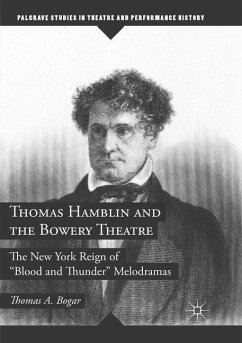
George Alexander and the Work of the Actor-Manager
Versandkostenfrei!
Versandfertig in 6-10 Tagen
38,99 €
inkl. MwSt.
Weitere Ausgaben:

PAYBACK Punkte
19 °P sammeln!
In the first book-length study of the work and legacy of West End actor-manager George Alexander since the 1930s, George Alexander and the Work of the Actor Manager examines the key part this figure played in presenting new drama by authors including Oscar Wilde and Henry James. The book sheds new light on the figure of the actor-manager, assessing in detail the influence of Alexander within and beyond his time.At the St. James's Theatre in London between 1891 and 1918, through a range of strategies including the support of new writers, and adaptation of fiction to the stage, Alexander sustain...
In the first book-length study of the work and legacy of West End actor-manager George Alexander since the 1930s, George Alexander and the Work of the Actor Manager examines the key part this figure played in presenting new drama by authors including Oscar Wilde and Henry James. The book sheds new light on the figure of the actor-manager, assessing in detail the influence of Alexander within and beyond his time.
At the St. James's Theatre in London between 1891 and 1918, through a range of strategies including the support of new writers, and adaptation of fiction to the stage, Alexander sustained professional status through practices that continue to be reflected in the cultural industries today. A range of evidence is employed including production reviews, anecdotal accounts, financial records, and personal correspondence, to reveal how he operated as a business entrepreneur as well as an artistic innovator.
At the St. James's Theatre in London between 1891 and 1918, through a range of strategies including the support of new writers, and adaptation of fiction to the stage, Alexander sustained professional status through practices that continue to be reflected in the cultural industries today. A range of evidence is employed including production reviews, anecdotal accounts, financial records, and personal correspondence, to reveal how he operated as a business entrepreneur as well as an artistic innovator.














